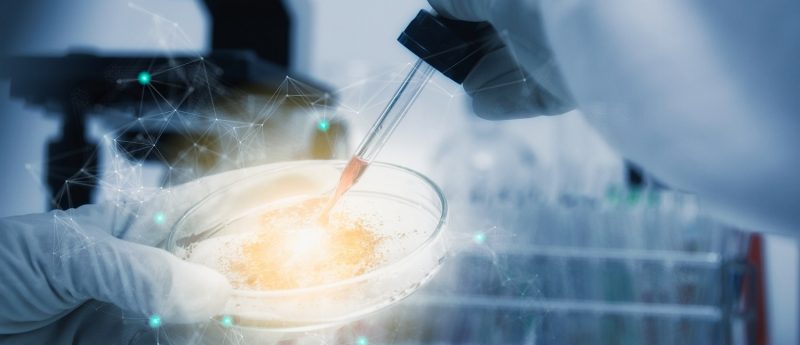Placing the Cell and Gene Therapy Catapult at the forefront of translational research: an interview with Jonathan Appleby

In this interview, Jonathan Appleby discusses his appointment as the new Chief Scientific Officer of the Cell and Gene Therapy Catapult.
Dr Jonathan Appleby graduated from the University of Leeds (UK) with an honors degree in Genetics and a PhD from the Department of Biochemistry and Molecular Biology. He was Project Leader and Portfolio Manager at the GSK (UK) Centre of Excellence for External Drug Development before joining GSK’s Rare Diseases Unit. Dr Appleby is currently Chief Scientific Officer for Cell and Gene Therapy at the GSK Rare Diseases Unit where, among other things, he is Medicines Development Leader for Strimvelis®, the first autologous ex vivo CD34 stem cell gene therapy to gain EU Marketing approval. He will take up his appointment as Chief Scientific Officer of the Cell and Gene Therapy Catapult (CGT Catapult; London, UK) on 1 October 2018.
What is the biggest challenge facing the Cell and Gene Therapy Catapult? How do you plan to overcome it?
In many ways, the size of the opportunity is the challenge. Many see cell and gene therapy as a single entity, but it is actually a vast and rapidly expanding field within science, medicine and society. The CGT Catapult has a part to play in all areas because our role is to create an environment where business can thrive. However, we cannot be everywhere so we have to make smart decisions about what we elect to work on. As Chief Scientific Officer I need to allocate time to horizon scanning for emerging technology or shifts in regulatory practice that modify the status quo. Getting decision making right, i.e. spotting disruptive technologies that accelerate a platform or backing a focused asset to become a medical and commercial success, is where I hope I can make a difference.
How will your experiences from GSK help in this role?
Successful medicine development requires a very holistic approach. Teams need to be able to think at a detailed level, particularly when evaluating technical options. Sometimes questions focus at an intermediate level, such as when designing clinical trials to generate decision making evidence. Always, there needs to be an eye on the bigger strategic picture taking in the overall group strategy, learning from the changing environment with a focus on the area in question. My experience has helped me understand that, whilst leadership and vision is important, no single person has all the answers. Good collaboration and team work is the key to success.
GSK recently transferred their rare disease portfolio to Orchard Therapeutics. Is this a sign that enthusiasm for cell and gene therapy in big pharma is waning? How could this affect the UK cell and gene therapy industry?
Big pharma enthusiasm for CGT is not waning. For example, consider the likes of a few, such as Pfizer, Novartis and Gilead; just in the last few months they have increased their investment to this space with expanded commitment in ALS (Sangamo), Ocular (EU rights to Luxturna) and Oncology (US$11.9 Kite Acquisition). GSK has divested the ultra-rare gene therapy portfolio in order to focus on oncology assets, not to reduce the amount of resources on cell and gene therapy. GSK has taken approximately 20% ownership of Orchard so is able to use the growth of the company as a vehicle to create value from the gene therapy portfolio that we helped develop but which ultimately did not align with the company strategy. Divesting the assets to a focused and expert biotech was a good deal for both companies and should result in several successful treatments being created for patients.
What else do you hope to achieve in this role?
From a personal perspective I would like to gain greater exposure and understanding of the UK’s life sciences’ infrastructure. I’m already discovering groups and activities that are new to me. I’m passionate about making a positive impact for UKPLC and would dearly like to play a central role in helping new companies be successful and contributing to the evolution of the field in general. Cell and gene therapy is already doing great things, but we all know that the best is yet to come.
Learn more about the CGT Catapult on RegMedNet:
- Watch: #TalkingRegMed episode 6: Brexit with Matthew Durdy, Cell and Gene Therapy Catapult
- Insight from the CEO: Supporting innovation at Cell and Gene Therapy Catapult: an interview with Keith Thompson, Cell and Gene Therapy Catapult
- News in Brief infographic: Cell and Gene Therapy Catapult Annual Review 2017